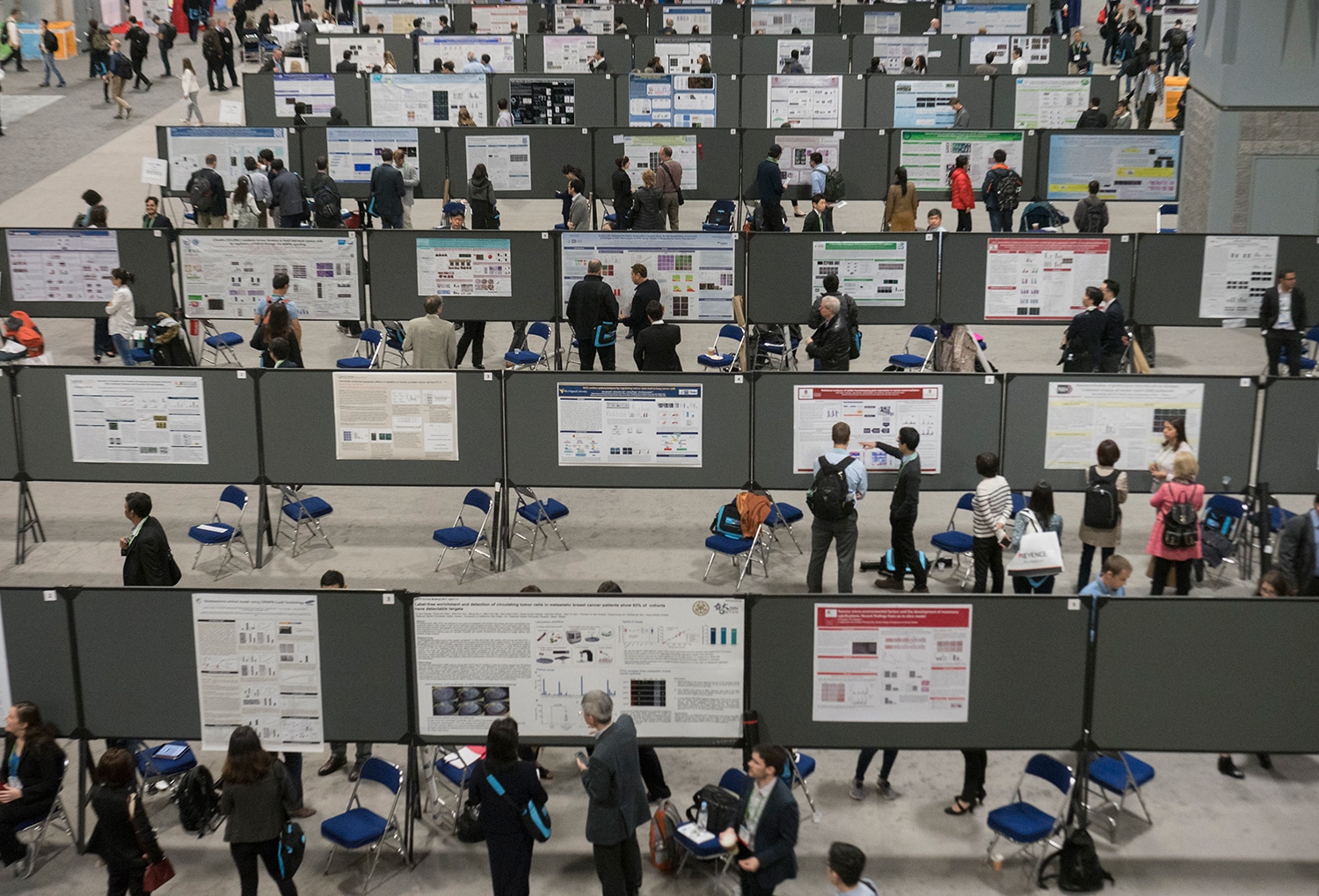As more than 20,000 attendees prepare to embark on the American Association for Cancer Research Annual Meeting 2018, it seems the perfect time to review some ground rules for patient advocates who may be heading to Chicago April 14-18 for the conference.
Attending any large scientific meeting can be overwhelming. Where do you begin and how do you make the best use of your time and energy? Further, how can you ensure that your efforts contribute to the cancer research community?
As graduates of the AACR Scientist↔Survivor Program, a special educational experience that gives patient advocates the opportunity to attend and learn from researchers at the AACR Annual Meeting, we’ve put together some tips to help guide advocates who are attending this or any large scientific conference.
Attend sessions specifically designed for advocates. Check the agenda for sessions geared towards patient advocates. These sessions feature top-notch scientists who excel at explaining research to nonscientists, and are likely to be the most meaningful and interesting hours of the conference.
Visit at least one poster session. Many of the poster sessions at meetings are presented by junior researchers who are delighted to discuss their work. Talk with the presenters and ask broad questions about the general focus of their work, as well as narrow questions about their specific projects. A one-on-one exchange might turn into a lasting relationship with a potential collaborator.
Seek out the plenary sessions. Plenary sessions are geared for the broadest audience, and you’ll hear the conference “headlines” at the same time as other attendees.
Browse the exhibit hall. You’ll find interesting displays at the exhibition hall and exhibitors who can share their knowledge and resources with you.
Wear comfortable clothes and shoes. Large conferences are held in expansive spaces, which equates to miles of walking; test out your shoes to makes sure they are marathon-ready. Temperatures can also vary from room to room; dress in layers.
Avoid making the following mistakes at scientific conferences:
- Don’t make speeches when it comes time to ask questions in educational sessions.
- Don’t show off your scientific knowledge. Ask questions about what you don’t know.
- Don’t monopolize a scientist’s time with a narrative about your own medical situation. If you can only talk about your own medical situation, you’re not ready to advocate for your peers.
Be a sponge. Keep your head up and observe what’s going on all around you. Are others listening intently to the presentation? What kind of questions are being asked, and how does the presenter respond?
Connect with your fellow advocates. Though your advocacy efforts may be different from another advocate’s focus, these variations can open the door to new ideas and fresh enthusiasm.
Reach out in advance. Ask scientists you know or have worked with whether they are attending the meeting. You can even email a scientist to introduce yourself and see if he or she has some time to talk.
Set aside some time to study. You’re rubbing shoulders with some of the most brilliant minds in cancer research, so feel free to do your own research. If there are concepts you don’t understand, use your favorite search engine or check out the National Cancer Institute website (cancer.gov), which includes easy-to-understand definitions and information.
Ask questions. Researchers enjoy discussing their work. You can ask them questions in whatever manner is most comfortable for you, whether posing a question at the mic during a symposium session or waiting to introduce yourself after their presentation. Follow up with scientists promptly after the conference, even if it’s just to thank them for their time or to send an email to get further elaboration of a concept you’d like to learn about.
Take care of yourself. It’s surprisingly easy to get so caught up in meeting activities that you forget to take care of your basic needs. If you’re exhausted, escape to your hotel room to rest and recharge your batteries. Drink plenty of water and make it a point to eat actual meals, not just snacks.
Have fun. It’s not every day that you’re in the same room as Nobel Prize winners. Enjoy the moment and take it all in. The information exchange and energy of meetings can be transformative.
Major cancer conferences, such as those sponsored by the American Association for Cancer Research, the American Society of Clinical Oncology, and the San Antonio Breast Cancer Symposium, welcome advocates with discounted rates, special sessions targeted to advocates, and some scholarship assistance. Other conferences, while not offering established programs for advocates, generally welcome patient advocates on a more informal basis. It’s worth an email or phone call to find out if you qualify for a discounted registration fee.
Cancer Today magazine is free to cancer patients, survivors and caregivers who live in the U.S. Subscribe here to receive four issues per year.





